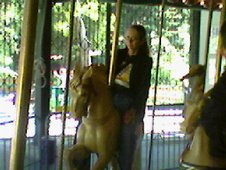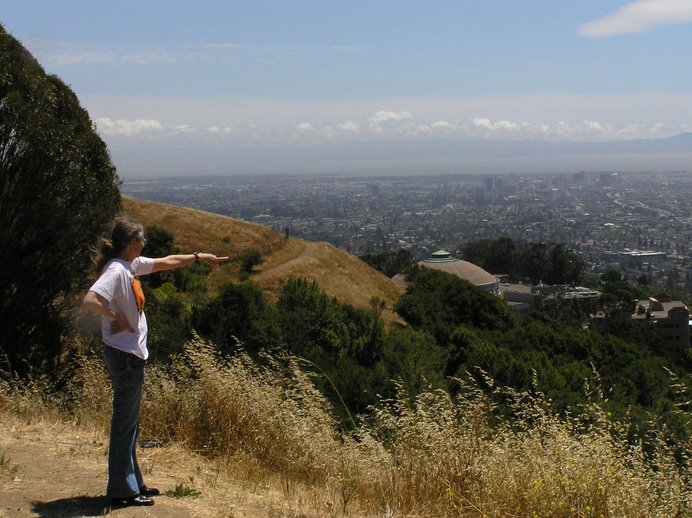A short history of Ukraine, before Nuland screwed the pooch in 2014
I was hanging out in Maidan Square back in 2009, feeding pigeons and
playing the tourist, when a local history professor struck up a
conversation with me. "There are three facts that have had a huge
impact on modern Ukrainians," he said. "First, you need to understand
that Ukraine is very old, having first appeared in the seventh century.
Back then it was called Ki-Rus, and it was the birthplace of modern
Russia as well. In 988 AD, Christianity was introduced, as a political
decision, because it would served to unite the various tribes here."
Then the Mongolians arrived in the thirteenth century. "Ki-Rus was the
last country the Mongols conquered on their way to Europe. Everything
was devastated and it all had to be rebuilt. Then Lithuanians and Poles
took over one-third of Ukraine.
"Cossacks were men of the borderland and had an ancient democratic
tradition, fighting against the Polish empire. So the second factor
here was that the western part of Ukraine was controlled by Poland --
and the eastern part was controlled by Russia. Westerners were
Catholics under the Pope. In the central and eastern parts, the main language was
Russian." There were a lot of internecine wars after that.
"The third big factor is the political aspect, the split between
pro-European alliances and pro-Russian affinities. This split has been
going on for centuries. In 1917, the nationalists came to power and
declared the Ukrainian People's Republic, the first time that the word Ukraine
was used. Even though the Republic only lasted a year, it was a
beginning." Then, as late as 1991, Ukraine actually became independent.
"After 1991, nothing was working properly, inflation was rampant and
many people committed suicide in the face of such uncertainty. We only
got our currency and constitution in 1996. But in the past 18 years, we
have achieved a lot."
Given this excellent opportunity, I started grilling the professor further. "What about economic, political and social issues?"
"Politicians decide everything here. From being under only one party
during the Communist era, we now have five parties. But even though
they now call themselves democrats, they are the same people who used to
be Communists. Also, as long as you are a member of Parliament, no one
can put you in prison. This sometimes comes in quite handy. And also
you don't elect members, you only elect parties. And how you get on the
ballot is by buying your slot." Same way as in America,
especially after that crappy Citizens United verdict.
"We elect the Parliament for four years and elect the President for
five years. The 2004 Orange Revolution involved a Presidential
election. It had three outcomes." With a little help from NATO -- who cleverly co-opted Ukrainians' unhappiness with their
government and turned it into a pro-NATO coup. Victoria Nuland used that same tactic in 2014 -- and and in 2022.
"Before 2004, all media channels were the same." Also just like in
America today. "But now they are more diverse. Protests were not
natural in Ukraine because protestors were sent to Siberia under the old
USSR regime. But ten million people protested in Kiev in 2004. The
old corrupt mindset had been above the rule of law. We actually thought
that the new government would be different. It wasn't."
People were deeply encouraged by the Orange Revolution -- just like
Americans were all hopeful that Obama would be different from Bush.
"It's more interesting now than the old USSR way of life. It's almost
like going to the circus."
"Help me out here," I said. "I'm all confused. Tell me how the Orange Revolution affected the common Ukrainian."
"Salaries have dropped 40%. Less than 1.5%
are extremely rich. 12% are middle class. Over 80% are below the
poverty level. Don't judge Ukraine by the high standards of Kiev. Not
all of Ukraine looks like this." Sounds like America too, especially after the past 735 days of being helplessly locked down.
"Not everyone here adheres to the rule of law now either. A city
council member got drunk and killed people last year. The newspapers
say that the investigation is ongoing.... Which means that nothing will
happen to the corrupt ones. Some politicians feel that they are
un-punishable." Sounds like Gates, Schwab, Big Pharma, Trump, Biden and
Fauci in 2022.
"Ukraine also has a central bank. It's supposed to have a free market
as well but there is much regulation. The income tax is now 15%. We also
import more than we export and buy more than we sell." Sounds like
America today too. "Most people here also go into debt. The interest
rate is 13%. Metallurgy, chemistry and agriculture are the main
industries here now. Hopefully, Ukraine will start to be the
breadbasket of Europe again."
"What about social issues?"
"We have great educational facilities but not any meaningful jobs are
available after you get out of school. And sometimes the knowledge we gain there
is not relevant, didn't give me the job know-how that I needed." Ivory
tower problems. Sounds familiar.
"Education and healthcare are the two excellent services that we
inherited from the Soviet Union -- but they still work only according to
the national budget. Doctors and teachers are two of the lowest-paying
jobs in Ukraine. Every five years doctors have to prove their
qualifications. It is not a very desirable profession." And the
doctors in Ukraine also make house calls! "Hospitals are free but patients
may be asked to buy their own medical supplies -- and hospital food is
terrible.
"Unemployment is low, 5% approximately, but most jobs are low quality
and offer low pay." Sound like where the United States is headed too,
lucky if you can get a job at McDonalds. "But the crime rate is also
low. Most victims are non-Ukrainian."
I shook the professor's hand and offered to buy him dinner. The food
at a nearby restaurant was crappy but the professor made for good
company and I learned much more about Ukraine, Babi Yar, Chernobyl, the
legendary Rabbi Nachman, Hasidic Jews' annual pilgrimage to the Baal
Shem Tov's grave, local wedding customs, the infamous WW II Nazi occupation
and other interesting stuff.
PS: Here's a fun trivia fact to use next time you're on Jeopardy: Because The Ukraine literally means The Borderland, it's grammatically okay to still call it that, just as Russia translates as Oarsmen -- so you can call that country The Russia too.
Resources:



